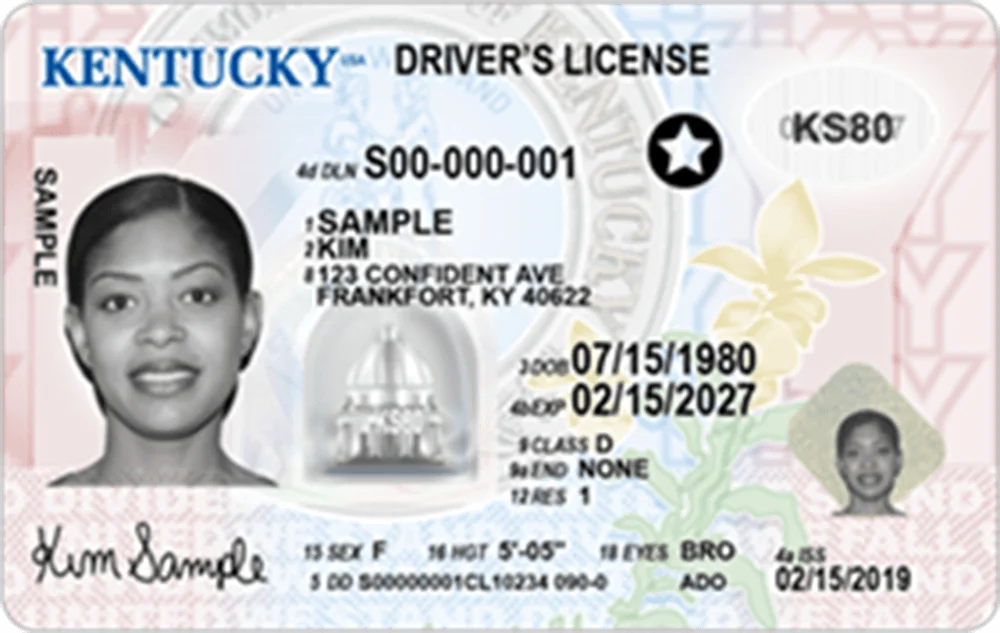Kentucky
ID Scanning Laws
In Kentucky, businesses are allowed to retain and use information obtained from IDs for specific purposes. These include:
- Verifying a customer’s age
- Establishing a customer’s identity
- Confirming a customer’s license status to operate a vehicle
- Disclosing such information to another business for:
- Verifying a check payment
- Evaluating creditworthiness
- Detecting or reducing the risk of fraud, abuse, identity theft, or other crimes
- Collection activities
- Confirming that a customer has met the motor vehicle financial responsibility requirements
- Disclosing such information to:
- The department of transportation
- Insurance licensees
- Notaries
- Financial institutions if permitted by federal law
- Law enforcement agencies




Kentucky State Legislature
ID Scanning Resources
The Legal Framework
Kentucky ID Scanning Laws and Regulations
In the state of Kentucky, the use of ID scanning technology is prevalent in various sectors, including the hospitality industry. Hotels, in particular, often use ID scanners to verify the identity of their guests, ensure the age of their guests, and maintain a secure environment. However, the use of this technology is governed by specific laws and regulations, and it’s crucial for businesses to understand and comply with these rules to avoid legal complications.
In Kentucky, businesses are allowed to retain and use information obtained from IDs for specific purposes. These include:
- Verifying a customer’s age
- Establishing a customer’s identity
- Confirming a customer’s license status to operate a vehicle
- Disclosing such information to another business for:
- Verifying a check payment
- Evaluating creditworthiness
- Detecting or reducing the risk of fraud, abuse, identity theft, or other crimes
- Collection activities
- Confirming that a customer has met the motor vehicle financial responsibility requirements
- Disclosing such information to:
- The department of transportation
- Insurance licensees
- Notaries
- Financial institutions if permitted by federal law
- Law enforcement agencies
These rules apply to all businesses, including hotels, that use ID scanning technology. However, it’s important to note that the laws and regulations governing ID scanning in Kentucky are not limited to these general rules. Specific statutes provide more detailed guidelines on what is permissible and what is not when it comes to ID scanning.
Overview of Kentucky ID Scanning Laws
Kentucky law does not regulate a business’s practice of scanning IDs or retaining information obtained from a scan. In the absence of any statute governing issues associated with a business’s practice of scanning IDs, a business is likely allowed to scan IDs and to retain information obtained from a scan, subject to applicable privacy laws.
Kentucky Law 244.085 – Minor Alcohol Possession & Sale
This law states that a person under twenty-one (21) years of age shall not misrepresent the person’s age for the purpose of inducing any licensee, or the licensee’s agent, servant, or employee, to sell or serve any alcoholic beverages to the underage person. A person under twenty-one (21) years of age shall not use, or attempt to use any false, fraudulent, or altered identification card, paper, or any other document to purchase or attempt to purchase or otherwise obtain any alcoholic beverage.
Kentucky House Bill 74 – An Act Relating to Pawnbrokers
This bill requires pawnbrokers to record the driver’s license, other government-issued picture identification card, or Social Security number (if no picture identification is available) of every person leaving property that has been pawned or sold.
Kentucky Law 365.725 – Destruction of Customer Records
When a business disposes of, other than by storage, any customer’s records that are not required to be retained, the business shall take reasonable steps to destroy, or arrange for the destruction of, that portion of the records containing personally identifiable information by shredding, erasing, or otherwise modifying the personal information in those records to make it unreadable or indecipherable through any means.
Please note that this information is intended to provide a general overview and does not constitute legal advice. Always consult with a legal professional for advice specific to your situation
Kentucky Anti-Trafficking Network
Our Fight Against Human Trafficking



Knowledge Base
Frequently Asked Questions
Yes, hotels in Kentucky can use ID scanners to verify the identity and age of their guests. However, they must comply with the laws and regulations outlined in the relevant Kentucky statutes.
Yes, a hotel can use an ID scanner to verify a guest's age for alcohol purchases. However, it is unlawful to enable a person under 21 to purchase alcohol using a scanned ID.
According to Kentucky Law 365.725, when a business disposes of any customer’s records that are not required to be retained, the business shall take reasonable steps to destroy, or arrange for the destruction of, that portion of the records containing personally identifiable information.
If a hotel discovers a fictitious or fraudulently altered ID, it should refuse service and report the incident to the appropriate authorities.
Violations of the ID scanning laws and regulations in Kentucky can result in misdemeanors or felonies, depending on the nature of the violation. Penalties can include fines and imprisonment.
More information about the ID scanning laws and regulations in Kentucky can be found on the Kentucky State Legislature's website
